1. Define your needs. Why are you selling your home? Growing family? New job opportunity? Identify your goals, such as time frames and profit margins you hope to obtain.
2. Name your price. Setting a fair price from the beginning will generate action from other agents and buyers. Take into account your home’s condition, comparable homes’ prices, and the overall market. Your real estate agent can help you determine a fair price. For a truly objective opinion, have your home appraised. This typically costs a few hundred dollars, but can affect the duration your home sits on the market. Studies show that the longer a house stays on the market, the less likely it is to sell for the original asking price. Therefore, if your goal is to make money, think about a price that will encourage buyer activity (fair market value).
3. Prepare your home. As a seller, you can only control three factors of your home: its condition, asking price, and marketing strategy. Your agent can help you position your home on the market to overcome any downsides, like perhaps its location, size, or necessary renovations.
4. First impressions are key! Make your home look its best. Fix things that are broken and remove clutter. Even a home with too much personality is hard to sell. Remove personal mementos and pictures. Buyers want to picture the home as theirs. Don’t confuse how much you value your home with what buyers are willing to pay for it, and don’t place too much emphasis on home improvements when calculating your price, because the buyer may not share your taste. Your agent can advise you on these matters.
5. Get the word out. The internet, yard signs, open houses, media advertising, agent-to-agent referrals, direct mail marketing, listing on MLS, or a combination of these ideas can all be helpful. Your agent should structure marketing so the first 3-6 weeks are the busiest.
6. Receive an offer. When you get a written offer from a potential buyer, your agent will determine if they are prequalified or preapproved to buy your home. Your agent will help you through the legalities of the proposed contract and answer any questions you may have.
7. Negotiate to sell. Your agent can help you negotiate and come to a win-win agreement on items such as price, financing, closing costs, repairs, appliances and fixtures, landscaping, painting, and move-in date. Once both parties have come to agreement, your agent will prepare a contract. Remain flexible on agent showings and avoid putting contingencies on the sale. You may want a certain move-in date, but you shouldn’t lose a sale over it.
8. Prepare to close. Your property may need to be formally appraised, surveyed, inspected, or repaired. Your agent can spearhead negotiations and legal issues with service providers. Depending on your contract, you may have to pay for all, some, or none of these items. You or the buyer may decide to walk away, open a new round of negotiations, or proceed to closing. A few days before closing, make sure the documents will be ready to sign on the appropriate date.
9. Close the deal. This means the ownership of the property is legally transferred to the buyer. Your agent will guide you through the process and make sure everything goes as planned. Remember to cancel electricity, gas, lawn care, cable, and other routine services. gather owner’s manuals and warranties for all conveying appliances.
A Note on Seller Etiquette
As with any business transaction, there is an expected protocol to how sellers, buyers, and agents interact. Should you find yourself in a sticky situation, alert your agent.
- The Aggressive Agent. When your agent puts your house on the market, typically all promotional materials state clearly that they should be the primary contact for buyers and buyers’ agents. However, sometimes a buyer’s agent will contact a seller directly to win business or cut the seller’s agent out of the deal. This is not reputable behavior and you should report it to your agent immediately.
- The Unscrupulous Vendor. When your house is on the market, less-than-ethical vendors are aware and often try to fill your mailbox with junk mail. Though MLS organizations enforce rules on this, some companies have found ways to pull information into mass mailing lists. If you think this has happened to you, alert your agent.
- The Naive Buyer. Yard signs and internet listings can be so exciting for prospective buyers that they may simply stop by. If this happens, it’s best not to “lead them on” with impromptu tours or discussions. Instead, politely let them know that your agent is in charge of scheduling tours and give them your agent’s information. If you attempt to handle these situations on your own, you may end up disclosing the wrong information or possibly harming negotiations down the road. It’s always best to keep your professional agent in the loop!
Your real estate agent is the best source of information about the local community and real estate topics. Give the Jackie Ruden Realty Team a call today at 435-272-7710 to learn more about local areas, discuss selling a house, or tour available homes for sale.





